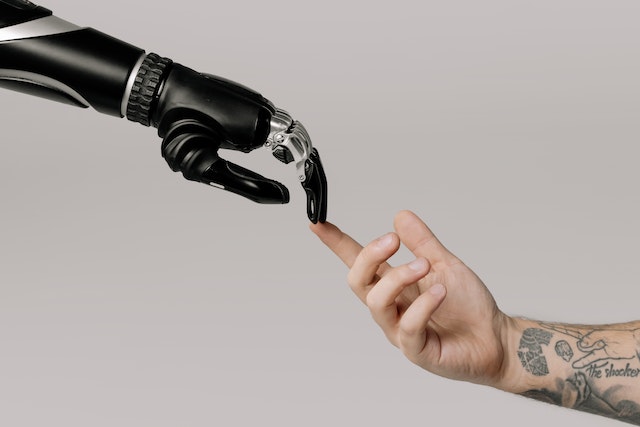Navigating the Transformative Waves: How Artificial Intelligence Impacts the Job Market
Introduction:
Indeed, Artificial Intelligence has undeniably emerged as one of our era’s most revolutionary technological breakthroughs, with its vast applications ranging from enhancing healthcare and redefining transportation to optimizing customer service and simplifying manufacturing processes. Yet, as the evolution of AI persists, it is fundamentally altering the landscape of the job market, a transformation that warrants our keen focus and comprehension.
Evolution of Artificial Intelligence in the Workplace:
Artificial Intelligence’s foray into the job market began with automation. Repetitive and routine tasks in industries like manufacturing, data entry, and customer support were some of the first to be affected. As AI algorithms and robotics evolved, these roles became automated, leading to job displacement in certain sectors.
Artificial Intelligence Positive Impact on the Job Market:
- New Job Roles:
Contrary to the popular narrative of AI replacing jobs, it has also given birth to a multitude of new job roles. AI has created opportunities for data scientists, machine learning engineers, AI ethicists, and AI trainers.
- Enhanced Productivity:
AI tools and software have significantly improved efficiency and productivity in many industries. Employees can now focus on higher-value tasks while AI systems handle repetitive, time-consuming work.
- AI-Augmented Workers:
AI doesn’t only replace jobs but also augments human capabilities. For instance, doctors can use AI-powered diagnostic tools to make more accurate assessments. AI-assisted decision-making is becoming the norm in various professions.
Challenges Posed by Artificial Intelligence:
- Job Displacement:
Certain jobs, especially those involving repetitive manual or cognitive tasks, are at risk of being automated. Workers in these fields must adapt and acquire new skills.
- Skills Gap:
Individuals need to upskill or reskill to thrive in an AI-impacted job market. Skills like critical thinking, creativity, and emotional intelligence are becoming increasingly important alongside technical skills.
- Ethical and Privacy Concerns:
The rise of AI also raises concerns about data privacy and ethical use. Professionals with expertise in AI ethics and data protection will be in high demand.
Conclusion:
The influence of artificial intelligence on the job market is multi-dimensional. While it presents hurdles and creates disturbances in specific sectors, it also ushers in fresh prospects and necessitates the need for adaptability. Embracing AI’s potential demands a proactive stance toward education and training, ensuring that the workforce of tomorrow is well-prepared to excel in an ever more AI-centric world. As AI evolves, the job market will persist in its metamorphosis. Grasping these shifts and making preparations for them is vital for both individuals and organizations aiming to thrive in the era of AI.
Also Read: Today Gold and Silver Price continues fall, Price falls by Rs 2100, what is the latest rate on MCX

4 thoughts on “How Artificial Intelligence Impacts the Job Market”